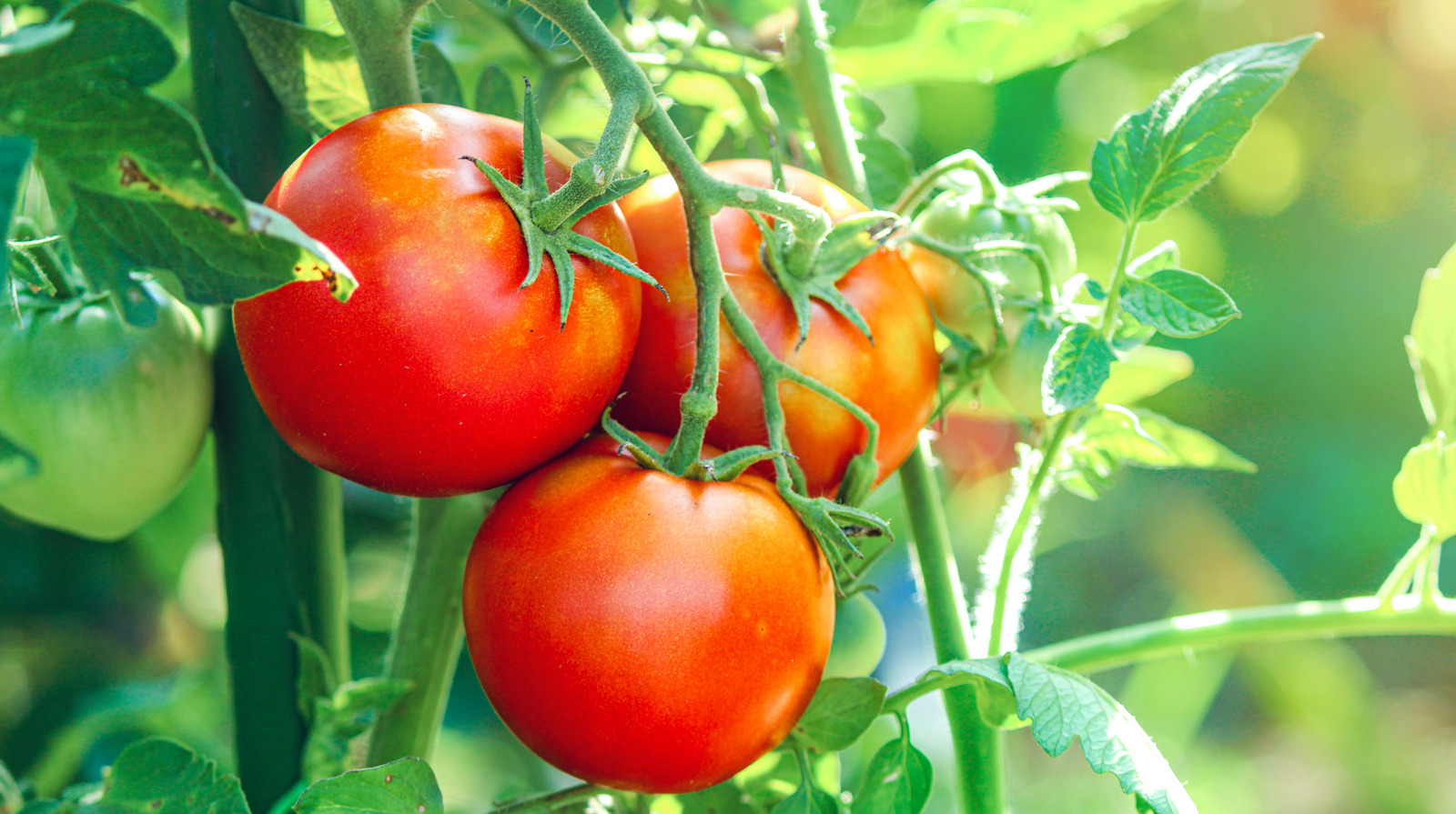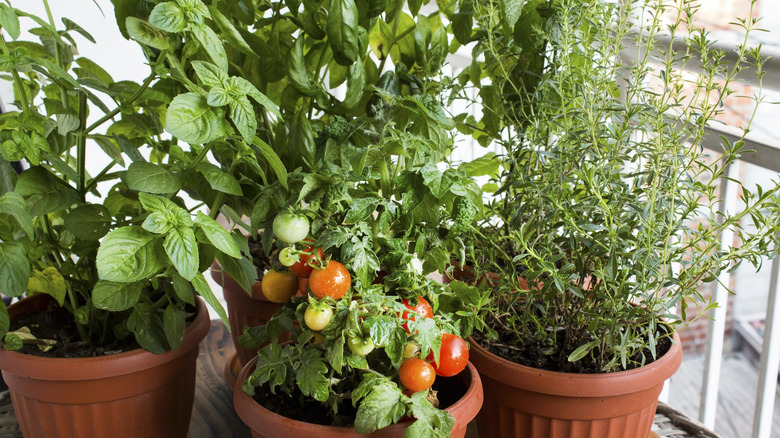There’s perhaps no better flavor on earth than a homegrown tomato picked at its peak (hello, tomato sandwich season). From little Sungolds to giant Beefsteaks, it’s pretty easy to grow tomatoes in your backyard garden (or even in containers on the porch). But don’t just stop at buying tomato plants on your next trip to the nursery; be sure to grab a basil plant or two. This powerhouse herb isn’t just a tomato’s best friend in the kitchen, it’s also beneficial in the garden.
If you’re not familiar with companion planting, it’s a method of growing things that can help other plants thrive. Corn, squash, and pole beans work so well together that they’re called the “three sisters.” Garlic grown with potatoes can beat back the threat of aphids, while oregano can deter pests from attacking cabbage, Brussels sprouts, and cauliflower. Tomatoes and basil get along famously in the garden because the scent of basil can repel common pests while the flowers bring in pollinators. Even better, a healthy basil plant means you’ll always have plenty on hand for caprese-style mozzarella and tomato stacks, and plenty left over for big pots of pesto sauce and strawberry basil lemonade.
Basil attracts the right kind of bugs
By far the biggest benefit basil brings to the table when it’s planted near tomato plants is its ability to bring the right kind of bugs to the party while simultaneously turning the bad ones away. If you’ve never grown basil, you might not know that it actually produces cones of small white flowers. These are typically pinched off by growers before they can bloom, which preserves the herb’s flavor (hence why you’ll never see basil with flowers in the grocery store). Hummingbirds and honeybees love basil flowers, however, so if you let the flowers bloom on at least a few plants before harvesting, those pollinators are more likely to visit your garden and stop by your tomato plants while they’re in the neighborhood.
Bugs that eat tender tomato plants and fruits, on the other hand, are very turned off by the strong scent of basil, including aphids, hornworms (those big caterpillars with horn-shaped tails), thrips, and whiteflies. In just a few hours, a few hornworms can defoliate and destroy an entire tomato plant, so even if you rely on other store-bought pest deterrents, a basil plant is a cheap and easy tool to add to your arsenal. As a bonus, basil also wards off bugs that like to snack on people, like mosquitos and flies, so not only will your garden smell great, you may get a few less bites this gardening season.






